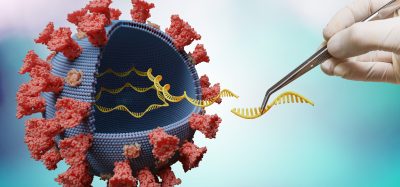Experimental vaccine a major breakthrough for rheumatoid arthritis
Posted: 5 October 2021 | Anna Begley (Drug Target Review) | No comments yet
A protein-based vaccine has proven a promising option to prevent rheumatoid arthritis, improving bone quality in animal models.


A team at the University of Toledo, US, has developed an experimental vaccine that has displayed significant promise in preventing rheumatoid arthritis and improving bone quality in pre-clinical studies, suggesting long-term benefits following immunisation.
Currently, rheumatoid arthritis is treated primarily with corticosteroids, broad scale immunosuppressive drugs or newer, more targeted biologics that target a specific inflammatory process. While those therapeutics can alleviate pain and slow the progression of the disease, they also can make patients more vulnerable to infection and, in the case of biologics, can be costly.
The lead author of the study, Dr Ritu Chakravarti, has previously studied a protein called 14-3-3 zeta and its role in immune pathologies, including aortic aneurysms and interleukin-17- a cytokine associated with autoimmune diseases. Based on their prior work, the research group was focused on the protein as a potential trigger for rheumatoid arthritis. However, rather than preventing rheumatoid arthritis, researchers discovered that removing the protein through gene-editing technology caused severe early onset arthritis in animal models.
Working under a new theory that the 14-3-3 zeta protein protects against rheumatoid arthritis, the team developed a protein-based vaccine using purified 14-3-3 zeta protein grown in a bacterial cell. They found the vaccine promoted a strong, immediate and long-lasting response from the body’s innate immune system, providing protection against the disease.
“Much to our happy surprise, the rheumatoid arthritis totally disappeared in animals that received a vaccine,” Chakravarti commented. “Sometimes there is no better way than serendipity. We happened to hit a wrong result, but it turned out to be the best result. Those kinds of scientific discoveries are very important in this field.”
In addition to suppressing the development of arthritis, the vaccine also significantly improved bone quality – a finding that suggests there should be long-term benefits following immunisation.
Learn how the gut microbiome is linked to rheumatoid arthritis prognosis → read here
“We have not made any really big discoveries toward treating or preventing rheumatoid arthritis in many years,” Chakravarti said. “Our approach is completely different. This is a vaccine-based strategy based on a novel target that we hope can treat or prevent rheumatoid arthritis. The potential here is huge.”
The researchers stated that they have filed for a patent on their discovery, published in PNAS, and are seeking pharmaceutical industry partners to support safety and toxicity studies in hopes of establishing a pre-clinical trial.
Related topics
Gene Therapy, Genome Editing, Immunology, In Vivo, Regenerative Medicine, Small molecule, Vaccine
Related conditions
rheumatoid arthritis
Related organisations
University of Toledo
Related people
Dr Ritu Chakravarti








